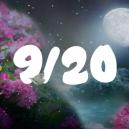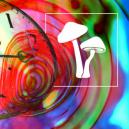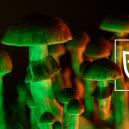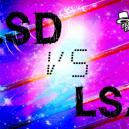What Are The Effects Of LSD?
Published :
February 1st, 2024
Categories :
Effects

Everyone has heard of LSD, but so many people (despite what they may think) know nothing about it. Here, we try to dispel some of the misinformation and give you a little more clarity regarding what to expect from LSD.
You may have been brought up to fear LSD/acid—most of us were. However, the truth is somewhat different, and for most who try this drug, whole new worlds of wonder open up.
In this article, we provide an overview of this very misunderstood drug, examining its effects and dangers, to give you some idea of what to expect.
WHAT DOES “LSD” STAND FOR?
LSD stands for “lysergic acid diethylamide”, hence its other famous pseudonym: “acid”. It should not be confused with LSA, a similar compound derived directly from nature. LSD is derived from the fungus ergot, which grows on grain, and was first discovered in 1938 by the famous chemist Albert Hofmann. At first, LSD was freely distributed across much of the world and was used across medicine, but especially in psychiatry/psychology.
Despite its relative infamy these days, LSD was widely accepted as a valuable and effective psychiatric treatment, and was the subject of much research. It was during the 1960s and 1970s that the tide turned against LSD, and the US (as it often does) led the war against this and other psychotropic compounds.
The reasons are complex, but in part it was an attempt to quash “hippy culture” and associated movements that could be identified with LSD and other psychedelics, as they were seen as a potential problem when it came to recruiting adequate numbers of effective soldiers for the Vietnam War.
In the last several years, LSD and other psychedelics have entered the mainstream once again, and, despite the reams of red tape, psychiatrists and others are once again attempting to undertake research in order to discover the potential benefits these drugs might have in a medical setting.
WHAT DOES LSD LOOK LIKE?
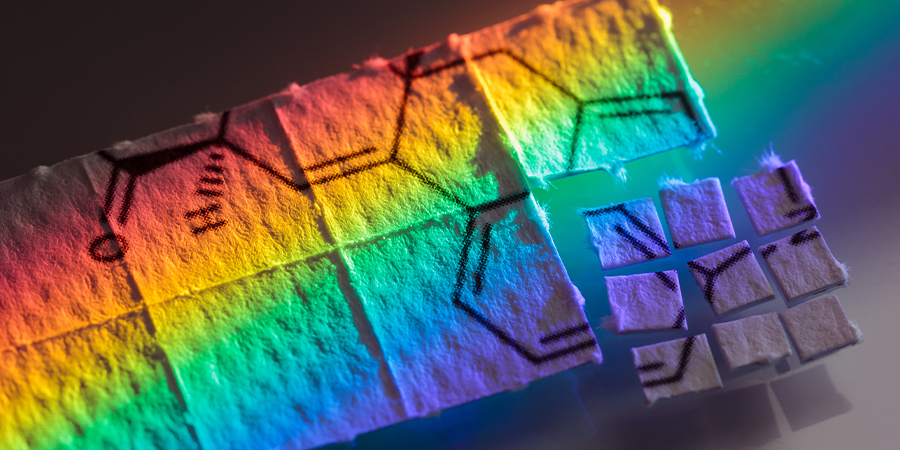
Most users will never see what LSD really looks like; for general application, it is dissolved in a solution and then applied either directly to the mucous membrane or on something like blotter paper, which is then put under the tongue. However, raw LSD is crystalline, white, and has no smell.
Most associate LSD with colourful little squares of paper, which is the most common means of ingestion. Due to this, it is impossible to identify whether what you are taking is actually LSD just by looking at it. Therefore, you should only take LSD that is sourced from somewhere/someone trustworthy, as there are many other analogues that can be used in place of it.
OTHER NAMES OF LSD
LSD goes by many names. The two most common are undoubtedly LSD itself, and the aforementioned acid. Other common names include:
- Blotter
- Lucy
- Mellow yellow
HOW IS LSD USED?
LSD is most commonly used as a "recreational" psychedelic, and has been for over half a century. Whether people use it to go on deep psychonautic voyages or as a party drug, LSD is very popular and has a solid user base. Some love it, others hate and fear it.
As mentioned, LSD is most commonly taken in a blotter form. To make blotters, LSD solution is dropped onto absorbent paper. The liquid then evaporates but the LSD remains in the paper. When this paper is exposed to moisture (inside your mouth), the LSD is then released.
Other methods involve dropping the liquid onto sugar cubes, which are then dissolved on the tongue, or even dropping it directly into your mouth. Some users report the latter method, so called “liquid LSD”, to produce the purest and most enjoyable experience—but this is only anecdotal.
HOW DOES LSD MAKE YOU FEEL?

Describing how LSD makes you feel, if you’ve never experienced it yourself, is near-impossible. Nevertheless, some expectations can be outlined, which could make you somewhat more prepared for the experience.
But if you’re thinking about heading into your first LSD experience, then perhaps the best thing you can do is prepare for the unexpected. If you are able to give in to the novelty of the experience and let go of control, then you are likely to have a good time.
That said, the following seeks to outline, in broad strokes, what you may experience under the influence of LSD. Take the following with a pinch of salt.
• Visual distortions and hallucinations: One of the most infamous parts of the LSD experience is the visual effects. Depending on the dose, these can range from distortion, saturated colour, and "tracers" (motion trails) to full-blown hallucinations. But be aware that despite anti-drug propaganda, experiencing true hallucinations on LSD is actually very rare, and you will almost always be able to understand what’s real and what’s happening. Visual effects can be even more potent when your eyes are closed. Especially in the dark, closed-eye visuals (CEVs) can be profound and enjoyable.
• Auditory distortions/hallucinations: These are harder to describe than the visual effects, but can be just as noticeable, especially if you listen to music. The auditory effects of LSD can be beautiful and strange, giving the sonic elements of the world clarity and beauty.
• Emotional effects: Expect to feel a wide range of emotions on LSD. These can be enjoyable or overwhelming—and often both. You might laugh uncontrollably for hours, or maybe you’ll cry (though this is not likely). The key is to flow with it, not push against it. Take LSD in a safe place where you feel comfortable to experience your full range of emotions, no matter what comes up. If you do this, a “bad trip” is very unlikely.
• Time distortion: It can feel as though time stops or stretches while on LSD, with hours losing their normal character and becoming meaningless. This feeling of timelessness is very enjoyable and offers a refreshing change from the usual rush of life.
• Changes in thought: The way you think will change significantly while on LSD. You might get stuck in confusion or thought loops, or you might experience deep insight into yourself and the universe, breaking free from usual modes of thought and discovering entirely new ones. The novel thought patterns uncovered on LSD can be highly enjoyable and insightful.
HOW LSD AFFECTS THE BRAIN
LSD, like all classical psychedelics, is a serotonergic compound that is thought to act mostly through the serotonin 5-HT2A receptors in the brain. As such, it is thought to be non-addictive, builds a very quick tolerance (which subsides quickly), and has little potential for abuse.
Understanding exactly how acid affects the brain is the subject of much contemporary research. The benefits of acquiring this knowledge is twofold; first, it gives us greater insight into how LSD works and how it could be used. Second, by observing which parts of the brain are affected, and how this relates to perceptual changes, we are able to gain greater insight into the normal working of the brain.
One interesting piece of fairly recent research found that people who used LSD had greater semantic activity, meaning they were able to recall and use a wider selection of words in more complex ways than usual (Family et al., 2016). The exact mechanisms behind this are uncertain, but it adds to growing evidence of the proposed “entropic” effect of psychedelics on the mind, essentially meaning that it becomes more interconnected.
HOW LONG DO THE EFFECTS OF LSD LAST?
The effects of LSD can last a long time, which is mostly a good thing. A normal dose (around 150 micrograms) will last around 12 hours, peaking between hours 4–8 and then gradually subsiding. Higher doses can last longer, though, with some people claiming that the experience can last over 24 hours. However, this is rare, and if you take a normal dose, you shouldn’t expect this.
In terms of how long LSD stays in your system, the good news is that it will depart very quickly. It will be detectable in your blood for 12 hours, and the urinary metabolite 2-oxo-3-hydroxy-LSD can be detectable for up to five days.
WHAT ARE THE RISKS OF TAKING LSD?
Despite what you’ve probably heard, LSD is actually a very safe drug. Overdose and death are almost unheard of, with the physical risks being minimal. However, it is true that LSD comes with some psychological risks, especially for those who take it in the wrong context, or have pre-existing or underlying mental health conditions.
PHYSICAL HEALTH RISKS OF LSD

While LSD does have some physical effects, such as increased heart rate and perspiration, it is not known to come with any physical dangers. Unlike stimulants, it cannot cause heart problems, nor can it adversely influence the functioning of any other organs.
There is no agreed upon definition of what an LSD overdose could be—which means there is no known fatal dose. There are rare cases of people accidentally taking extremely high doses of LSD and experiencing adverse effects, such as vomiting and total disorientation. But even in these cases, while medical observation was deemed appropriate, intervention was not necessary and the people recovered fully without adverse effects.
This doesn't mean you should take high doses of LSD, as the mental effects can be terrifying and dangerous, but you can be fairly certain that your body is safe when on LSD.
MENTAL HEALTH RISKS OF LSD
LSD does come with mental risks. The most common and least dangerous of these are those that could be characterised as a “bad trip”. This catch-all term isn’t necessarily helpful, but it is commonly used, so it’s worth trying to understand it. A bad trip can perhaps be best described as a psychedelic experience that becomes very overwhelming in some way—sensorily, emotionally, or both—and the person can’t get past it. Though these experiences can be extremely uncomfortable, they are not dangerous so long as you are in a safe place with trusted people.
There are some rare examples where LSD appears to have triggered psychosis in people who are prone to this condition. This is very uncommon, but if you or someone in your family has a history of mental health disorders, you should not take LSD unless under the care of a highly trained medical professional.
MIXING LSD WITH OTHER DRUGS
LSD is not thought to have any dangerous drug interactions—although it is always advised to avoid taking any psychotropic drugs if you use medications for mental health, such as SSRIs, MAOIs, or anti-psychotics.
Just because LSD may not have chemically dangerous drug interactions, this does not mean that it is advisable to take it with other drugs. LSD is potent, and mixing it with other psychotropic drugs can have unexpected and unpleasant effects. Moreover, the effects might be so powerful that you may behave in dangerous ways, which could lead to harm or death.
Before mixing recreational drugs, become acquainted with each one in isolation.
LSD AND ADDICTION
LSD is not addictive. While you can abuse any drug, you will not develop an addiction to LSD. There are myriad reasons for this, and some are not fully understood. It is known, though, that the brain builds a very rapid tolerance to LSD, meaning if you take it multiple days in a row, it will very quickly stop working. So you can’t take this drug regularly enough to build an addiction. It is also thought that the way it works in the brain simply doesn’t build addiction in the same way that other drugs, such as alcohol or opioids, do.
LSD: A FASCINATING PSYCHEDELIC

LSD is world-(in)famous, loved by some, and feared by many others. After decades on the fringes of society, it is once again entering the mainstream, and people are beginning to accept that it’s not so dangerous after all.
If you’re tempted to try LSD, then we wish you a good experience. To optimise the chances of this, ensure you take it in a suitable environment, and avoid it if you or close family members suffer from mental health conditions.
This misunderstood drug can be wildly profound and even appears to have significant clinical potential, which we are now beginning to understand more clearly. Let’s see what the future holds.








